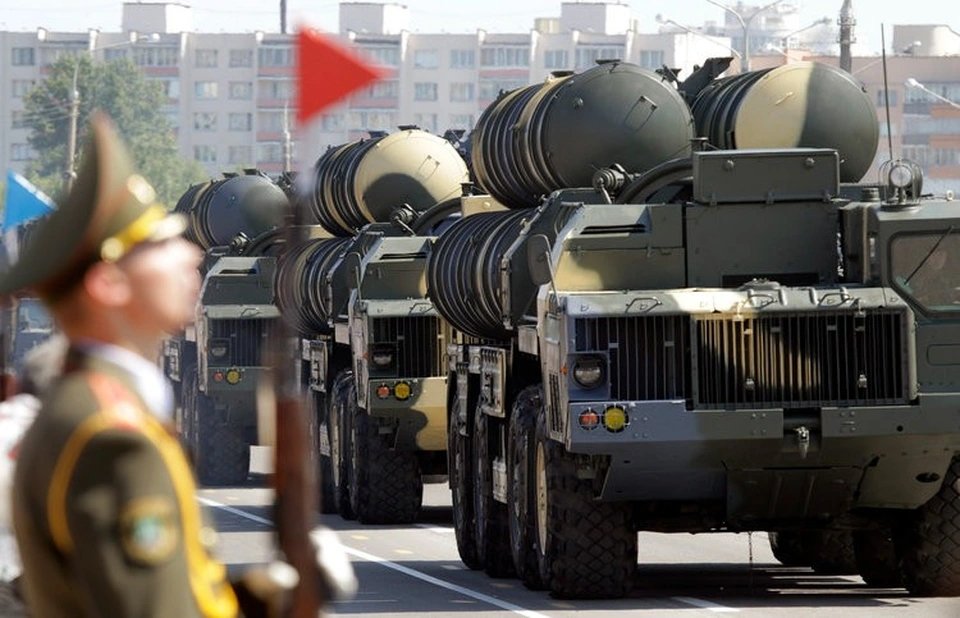
The possibility of Israel `capturing` Russia's S-300 fire dragon in Syria 1
(Dan Tri) – The S-300 missile defense system deployed by Russia to Syria may make it difficult for Israel’s air strikes, but Tel Aviv is said to have enough ability to stop the `fire dragon`.
Powerful Russian S-300 air defense system
Russia’s S-300 air defense system (Photo: Reuters)
On September 24, the Russian Ministry of Defense announced a plan to upgrade Syria’s air defense capacity with the modern S-300 missile defense system produced by Moscow.
Russia’s move marks the latest tension in the turbulent relationship between Russia and Israel since Moscow’s Il-20 reconnaissance plane was shot down by Syrian air defense last week.
Stormy relationship
Since the 1960s and 1970s, Israel was forced to accept the fact that Russia increasingly made moves contrary to Israel’s interests.
Israel’s perception of Russia may change after the crisis related to the downing of the Il-20 plane.
Over the past 5 years, Russia has repeatedly threatened to sell the S-300 complex to Syria, but then withdrew its plan out of `respect` for Israel, and sometimes even the United States.
With a range of 250 km, the S-300 air defense complex is much more modern than the S-200 complex that the Syrian army is using.
Russia has not yet revealed which of the many S-300 models with different ranges will be sent to Syria.
Israeli air force capabilities

F-35 fighter jet (Photo: Sputnik)
For Israel, the S-300 air defense system is a major obstacle, but it can still be overcome in Syria – where Israel regularly conducts airstrikes to bomb Iranian facilities and weapons depots and a
Although the S-300 complex (NATO calls it SA-10) is much more powerful than Syria’s current S-200 (also known as SA-5) air defense system, the Israeli air force has prepared it.
Many of Israel’s allies already operate the S-300.
Israel is also `proud` to own a fleet of F-35 fighter jets with increasingly powerful stealth capabilities.
In addition, the Israeli Air Force is also famous for its electronic warfare capabilities.
Israel is believed to have used similar technology in its attack on Syria’s nuclear reactor in Deir Ezzor in 2007 and blocked Syria’s air defense systems.
Risk of confrontation between Russia and Israel

Russian President Vladimir Putin and Israeli Prime Minister Benjamin Netanyahu (Photo: GPO)
However, for Israel, the S-300 air defense system provided by Russia to Syria not only poses an operational challenge, but also poses a potential geopolitical risk.
Although Russian Defense Minister Sergei Shoigu said the Syrian army has been trained to use the S-300, it is unclear whether Russian soldiers will participate in the operation.
Russia’s plan to deploy electronic warfare to restrain Israeli `hot heads`, as Minister Shoigu put it, also poses another barrier for the Israeli air force.
According to Russian media, electronic warfare systems will create a `radio dome` with a coverage of hundreds of kilometers in the area around western Syria and the Mediterranean coast.
Earlier this year, when Russia threatened to supply S-300 to Syria, Israeli officials announced that the country’s air force was ready to target any air defense system that attacked Israeli aircraft, no matter who provided it.
“If any system shoots our planes, we will destroy them.
Analysts believe that the Israeli army may have combat technology in hand to counter Russian weapons, but Israeli leaders still have to consider whether to deploy such measures or not.
Success
Synthetic



